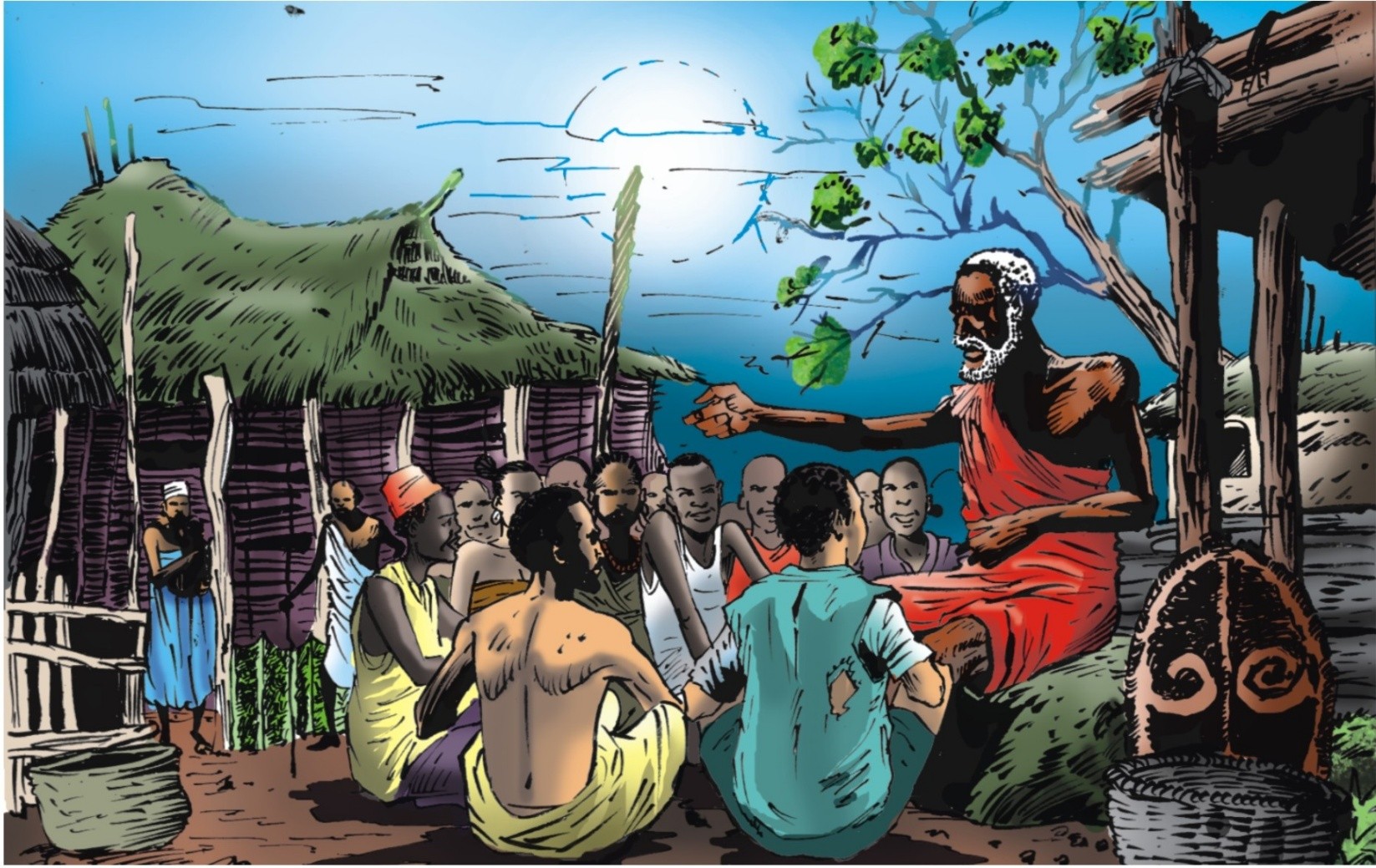
Imagine a moonlit evening gathering in an African village about two hundred (200) years ago. The gathering consists of an old man, who sits up straight on a low wooden stool, facing about a dozen young people who sit up on the earthy floor. The entire compound is absolutely quiet except for the calm and clear elderly voice. The young listen with rapt attention as the elderly speaker finds the words to articulate interesting adventures of their common ancestors. For the listeners it is indeed a fascinating account of their adventurous forebears. But it is more or less the traditional duty of the elderly narrator to pass on this historical account through an oral practice that helps to conserve the memory of what their forebears had done. To the aged raconteur, such narration will also educate and entertain the young, improve their understanding of their unique roots, and also strengthen their virtues.
At that time in African history, however, young people might never learn in another way of what happened in the distant past, which dates back many decades before their time. The fact is, such historical accounts were then passed on only from mouth to mouth. And in due time, it would become the responsibility of those young listeners to pass it on to the generations that would come after them. This practice of passing historical information from mouth to mouth is called Oral Tradition. And it was very common in preliterate societies (e.g. Africa before the 1900s) – a preliterate society has no writing language and so its people cannot write down their thoughts and feelings.



